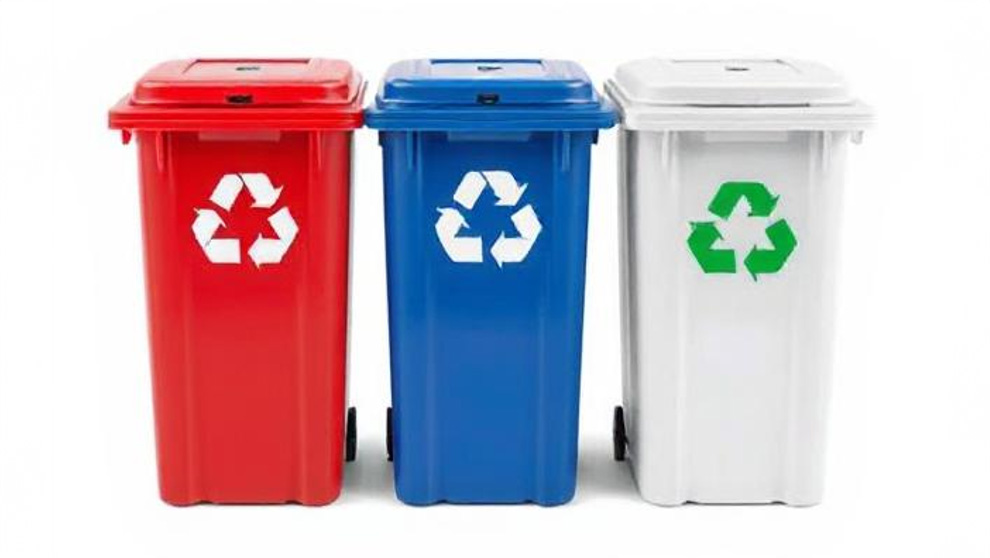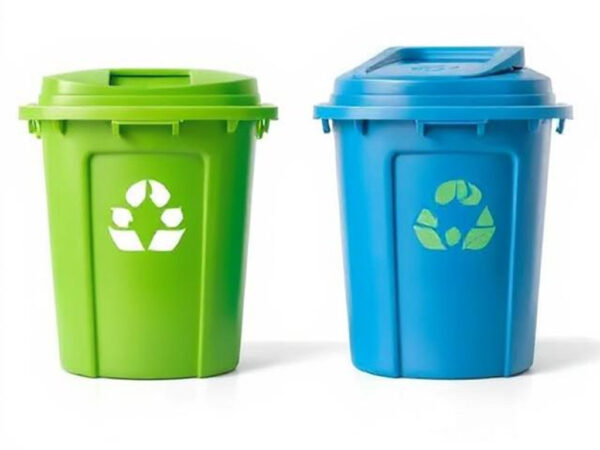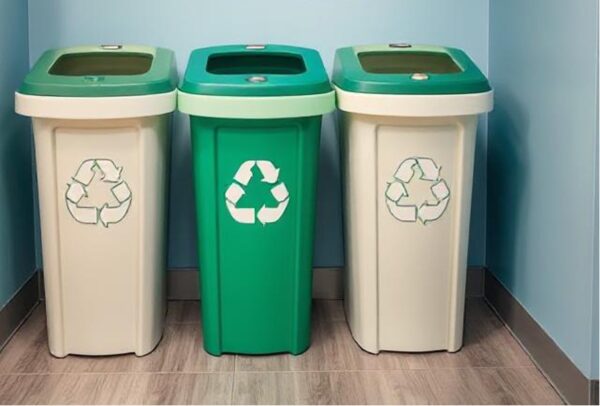Can Recycling Medical Waste Reduce Healthcare Costs?

Healthcare waste expenses aren’t always obvious. You don’t get a bill labeled “unnecessary spending,” but that doesn’t mean it’s not happening. For most clinics and facilities, the real problem isn’t how much waste they produce—it’s how it’s being handled. And when that system isn’t tight, money starts slipping out in ways that don’t get noticed until it’s too late.
The waste process usually seems fine on the surface. Red bags are used, bins are picked up, paperwork gets filed. But under that routine, there are usually hidden issues that pile up costs fast.
Here’s Where Things Often Go Wrong:
- Overstuffing red bags with general waste: Tossing non-regulated materials into red bags means paying top dollar for something that didn’t need special treatment. Every extra pound costs more than it should.
- Too many pickups on the schedule: Empty or half-full containers are often hauled away just because that’s what the calendar says. If the volume doesn’t match the pickup frequency, you’re overpaying.
- Lack of waste sorting at the source: When staff toss everything into the same bin without checking, recyclable or non-hazardous waste ends up being treated like biohazard waste. That means higher disposal costs for items that could’ve been cheaper to handle.
- Penalties for bad documentation or storage violations: If logs aren’t filled out or containers aren’t stored properly, inspections can turn into fines. It’s not just about the waste—it’s about how it’s tracked and reported.
Facilities also lose money by overlooking their document and record workflows. Improper document handling can lead to compliance violations. Many clinics that upgrade their secure document destruction systems lower their risk and avoid unnecessary storage or legal costs.
A lot of this comes down to not having a clear system or trying to apply a generic waste process to a facility with unique needs. A study found general hospitals spent 1.63 times more than specialized hospitals on treating hazardous–infectious waste per year.
That’s where working with a healthcare-focused waste provider helps. We’ve seen how much clinics save when they tailor their waste management to match their operations.
At remedi, we help providers identify where waste spending gets out of control and design a setup that fixes those issues. Working with healthcare facilities across Texas, we’ve seen firsthand how minor changes lead to major savings.
Facilities listed in directories like Texas healthcare waste companies are expected to follow proper waste management standards. But following them efficiently? That’s where the savings come in.
How Recycling Cuts Costs Without Cutting Corners

Recycling medical waste isn’t just about being environmentally responsible—it’s also a smarter way to reduce operating costs without skipping safety steps. The key is setting up systems that work in real-world conditions, not ideal scenarios.
You don’t need to be a large hospital to benefit. In fact, small clinics and dental practices often see the most immediate results, especially if they’ve never taken a hard look at their waste routines.
What Recycling-Focused Waste Programs Offer:
- Smaller disposal volumes overall
When recyclable items like wrappers, packaging, or unused supplies are sorted out properly, the total waste that needs costly treatment drops. - Improved tracking and inventory awareness
Logging what gets tossed—and when—leads to better ordering habits. That cuts down on expired meds and wasted supplies. - More efficient use of containers
Recycling setups often include more specific bins, so red bags aren’t filled with low-risk materials. It’s a simple switch that saves money fast. - Scheduled reviews and system checks
Regular audits flag bad habits early. If recyclable materials are ending up in the wrong bins, it can be corrected before it becomes costly.
Some clinics use mail-back container systems to simplify the recycling of small-volume waste types, especially in rural areas or facilities with low storage space. These services cut down on in-person pickups and make waste removal more predictable.
We at remedi always focus on long-term solutions, not just quick fixes. By helping clinics build recycling into their operations, we make sure safety and savings stay in balance.
How remedi Builds Cost-Saving Programs For Facilities
Every healthcare facility is different. Some deal with high patient flow, others manage specialty waste types. But no matter the setting, waste adds up fast—and so does the cost. The trick isn’t in doing more. It’s in doing things smarter. That’s where we come in.
At remedi, we don’t use a one-size-fits-all approach. Instead, we build medical waste recycling programs based on what you actually throw out. The goal is always the same: reduce what costs you money and increase what keeps you compliant.
Where Our Process Starts
Before recommending anything, we look at your current setup. We run a full waste audit that shows where the inefficiencies are.
- Too many containers?
- Red bags filled with packaging waste?
- Unused meds tossed in the wrong stream?
From there, we design a system that matches your actual workflow.
Making Waste Easier To Handle Daily
Once we know what you’re working with, we help streamline your setup:
- Fewer bins with clearer labels
- Placement based on staff movement
- Container styles suited for your space
- Pharmaceutical waste solutions that support safer segregation
Most clinics benefit just from changing how bins are used—not by adding more. In fact, switching to simplified sharps disposal systems often improves safety and lowers pickup frequency.
Keeping Staff Trained And Records Clean
Having a solid system in place is only half the battle. The other half is getting everyone on board.
- Staff education sessions
- Training materials tailored to your facility
- HIPAA and OSHA compliance support
- Quarterly check-ins to keep things tight
When your staff understands what’s recyclable and what’s not, mistakes drop—and so do fines.
We’ve helped everything from local practices to multi-site nursing homes cut back their disposal costs by getting their entire team aligned. Every dollar saved starts with one better habit.
What A Good Recycling Program Looks Like

If you’ve ever had bins piling up or containers always half full, that’s a sign the program isn’t working. The difference between a system that bleeds cash and one that supports your bottom line usually comes down to how it’s built.
A good medical waste recycling setup is one that runs without creating extra work. The goal is always less confusion, less risk, and lower cost.
For example, a study revealed how a U.S. hospital’s neurosurgery department implemented a recycling program, and enjoyed annual cost savings of $174,240 and generated $5,000 in revenue from selling the recycled material.
Clear Containers That Match The Waste
It starts with the right tools. Labeled bins prevent mix-ups. Placement matters too—bins need to be where the waste happens, not three rooms away.
- Labeled containers for sharps, trace chemo, and recyclables
- Easy access bins in treatment and prep areas
- Controlled substance disposal bins for secure handling
- Biohazard medication waste setups for safe sorting
We’ve found that just moving a bin closer to the source can reduce improper disposal by over 30%.
Organized Tracking You Can Actually Use
Tracking matters—but it shouldn’t feel like a second job. That’s why smart recycling programs include tools you’ll actually keep up with.
- Collection logs that make reporting easy
- Digital records you can pull anytime
- Container pickup logs tied to actual volume
- Integration with document destruction systems to handle related sensitive materials
When your compliance officer can pull a clean record in under five minutes, that’s when the system works.
Staff Who Know What Goes Where
Even the best bins won’t help if people don’t know how to use them. That’s why training is built into the process—not something extra on top.
- Simple guides by waste type
- Onboarding support for new hires
- Review sessions built into compliance checklists
When things are labeled right, tracked clearly, and backed by training, the system runs itself—and keeps your costs under control. We’ve built setups like these for ambulatory surgery centers, dental practices, and urgent care clinics, and they all share one thing in common: simplicity works.
Who’s Already Saving Money With Medical Waste Recycling?
Not every facility looks the same, but many share the same goal—cutting costs without cutting corners. That’s why recycling medical waste has become a go-to move for organizations trying to manage overhead. It’s not just about lowering disposal costs. It’s about working smarter with the waste you already create.
Over the years, we’ve seen different types of facilities benefit from recycling. Some save by reducing pickups. Others avoid fines by staying compliant. Either way, it adds up.
Surgery Centers That Need Fast Turnover
Outpatient surgery centers move through tons of materials—packaging, wraps, trays, and more. Most of it isn’t regulated, but it often ends up in red bags by default. With better sorting systems and clear labeling, these centers can:
- Drop their pickup frequency
- Reduce what goes into costly hazardous containers
- Stay compliant with less oversight
Those using ambulatory surgery waste programs often see cost reductions within the first 60 days.
Busy Urgent Care Clinics
Clinics focused on fast care burn through gloves, paper liners, and disposable supplies. They also face high staff turnover, which makes training even more important. Facilities that adopt clinic-based waste recycling tend to save by:
- Sorting non-hazardous waste more accurately
- Training new team members using prebuilt guides
- Using sharps disposal systems that meet state requirements
We’ve helped dozens of urgent care facilities switch from overuse of red bags to smarter container strategies. It keeps things simple and reduces what ends up in regulated waste.
Long-Term Care And Nursing Homes
In long-term care settings, medication disposal is often the biggest concern. Staff may throw out full doses, expired meds, or controlled substances using outdated methods. That’s a problem—both for safety and for budget. Homes that switch to controlled substance disposal systems save time and reduce risks.
Recycling also helps with bulk packaging and unused items that don’t need special handling. Our nursing home waste management solutions support facilities in maintaining proper logs and using fewer containers.
Dental Clinics With High Waste Volume
Dental offices use single-use supplies by the case. When those supplies don’t end up in the right bins, disposal costs spike. Most clinics don’t need large volumes of regulated waste pickup—they just need better systems. Offices that switch to dental-specific waste disposal benefit by:
- Reducing container overuse
- Organizing pickup schedules based on volume
- Ensuring unused medications go through safe disposal options
At remedi, we’ve worked with all of these types of facilities. And in each case, the biggest impact came from one small change: paying attention to what actually goes in the bin.
How To Get Started With A Smarter Waste Plan

If you’re looking to cut costs, avoid compliance headaches, and keep things moving smoothly, a better medical waste plan is a smart place to start. The good news? It doesn’t have to be complicated. You don’t need a huge budget or a long contract. You just need a clear process—and a team who knows how to guide it.
We make getting started easy. Here’s how most of our clients go from overspending to streamlined.
Step 1: Schedule A Quick Audit
It starts with a walkthrough—virtual or in person. We look at how your team handles waste, how often pickups happen, and where costs are building up. We also evaluate whether services like mail-back containers would simplify things in smaller locations.
This is where we identify the biggest opportunities to save.
Step 2: Get A Plan That Fits
Once we know what’s happening, we build a recycling and waste management plan tailored to your setup. That includes:
- Bin recommendations
- Pickup timelines
- Sharps and med waste programs
- Training programs for your staff
Everything is built to match your size, staff, and budget.
Step 3: Go Live And Start Saving
With bins in place and staff trained, the switch is seamless. You’ll receive support along the way and documentation you can hand over if inspectors walk through the door. Facilities often report savings within the first quarter.
We also offer extended support for facilities managing records and regulatory documents. If you’re juggling physical files, secure document shredding is an easy add-on that protects you from compliance risks.
That’s why we built remedi around simplicity and cost control. We don’t just show you what to fix—we help you put it in motion.
Why Now Is the Right Time to Rethink Waste Costs
If you’ve been thinking about waste as just a routine part of doing business, it’s time to reconsider. Between rising disposal fees and stricter compliance checks, the way facilities handle waste now has more impact on budgets than ever before.
Recycling medical waste the right way isn’t just a sustainability move—it’s a financial strategy.
Cost Pressures Are Climbing
Disposal costs are going up, especially for regulated waste. That means every red bag, overfilled bin, or mislabeled container has a bigger impact on your bottom line. Switching to a recycling plan can help:
- Lower overall disposal weight
- Minimize how often haulers need to come
- Catch and prevent overclassification
- Meet local requirements with fewer headaches
The average clinic can cut its monthly waste cost by 15–25% by making a few changes to how materials are sorted and picked up.
Regulators Are Watching Closer Than Ever
Compliance checks aren’t getting more relaxed—they’re getting tighter. Improper documentation, container placement, and staff confusion are some of the most common issues during audits.
Using HIPAA and OSHA-compliant training and routine checks helps your team avoid common mistakes. Adding secure document disposal ensures your process protects both your business and your patients.
At remedi, we’ve seen how facilities save money and avoid trouble when their waste setup is built to meet actual state and industry standards. We’re here to help make those transitions easier.
If you’re still using the same waste plan you had two years ago, there’s a good chance you’re paying more than you need to. Contact us to get a cheaper quote than your current waste solution.